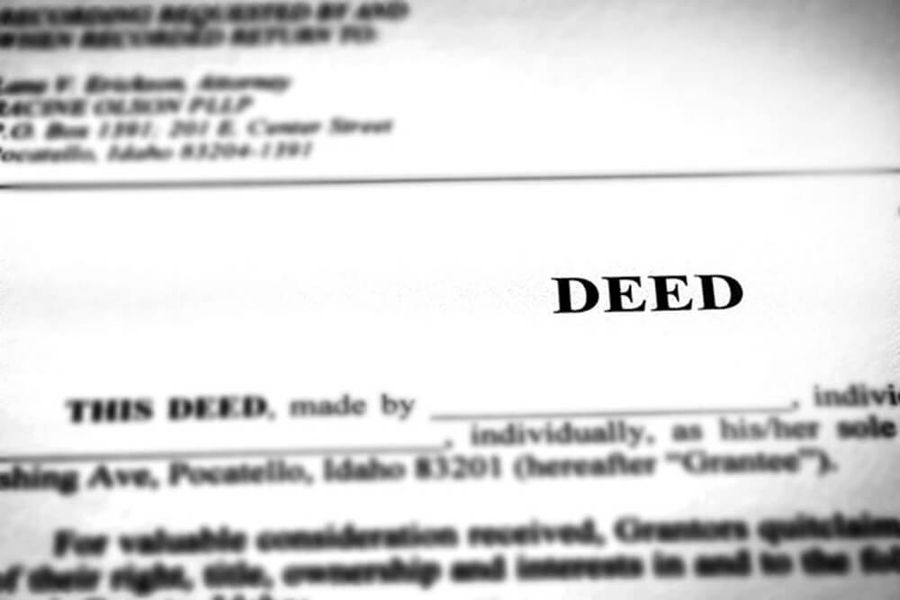
A man hired to help care for his elderly diabetic neighbor has been indicted for allegedly stealing and trying to sell the senior citizen's East New York home. Jordan Horsford, 29, was indicted on Wednesday on 12 counts, including grand larceny and identity theft.
According to Brooklyn D.A. Eric Gonzalez, Horsford was hired by the victim's family to help the 85-year-old man—at first, in 2016, they paid him for tasks like helping carry his wheelchair or helping him in and out of vehicles, but then the relationship expanded in 2017 to Horsford earning $400 a week for more regular duties like accepting the victim's Meals on Wheels deliveries, making sure he was taking his medicine, and checking in on him each night.
Then, on June 19th, 2017, Horsford allegedly convinced the victim to sign away the deed to his home on Barbey Street. "The defendant allegedly told the victim he risked losing his home if he did not sign a document, and had the document notarized by a notary. The defendant then allegedly realized he needed another document notarized, but the notary refused so the defendant allegedly copied and cut and pasted her original signature. He then recorded the deed, which had been signed over to him," a press release from the D.A.'s office states.
Horsford is accused of trying to sell the property soon after having the deed, but a sale fell through when a suspicious title company wouldn't insure the home. The D.A.'s office says the interested buyer then contacted the victim's family, and, "at around the same time, the victim’s daughter, while going through her father’s mail, found a letter from the Department of Finance notifying them about documents filed relating to the property."
After the daughter reached the Department of Finance, the Brooklyn D.A.'s office got involved. Following the indictment, D.A. Gonzalez said, "This case should serve as another warning that rising property values in Brooklyn make homeowners, especially the elderly, the target of unscrupulous predators trying to steal their homes from under them. I urge all homeowners to be especially careful about signing documents relating to their property without trusted legal advice."
Horsford is also accused of using the victim's credit card to buy two gold bars online in 2016 and in 2017.
Earlier in the week, New York Attorney General Letitia James announced that Marilyn Sanchez, who was indicted in 2017 for allegedly stealing two Brooklyn homes, one in East Flatbash and another in Brownsville, was sentenced to 60 days in jail, followed by five years probation. Sanchez, 49, will also sign the deeds to the homes back to the rightful owners.
Deed theft has been on the rise over the past few years as the New York City real estate market has heated up.
Last November, Brooklyn Borough President Eric Adams and Council Member Robert Cornegy held a press conference noting the rise in deed theft among Brooklyn homeowners, especially minorities. "Deed fraud and mortgage foreclosures have reached a crisis moment in Brooklyn. We must do more to ensure that bad actors and government programs are not forcing seniors and low-income residents out of their homes," they said.
According to the Brooklyn Daily Eagle, Adams and Cornegy charged that additional tactics like "fraud, the lien system and [the Department of Housing Preservation and Development]’s Third Party Transfer (TPT) program," are being used to steal homes. One homeowner said that it took the city took weeks to post her water bill payment—during which time the city took possession of her home.
"When Crown Heights, Bedford-Stuyvesant, Prospect Heights, Brownsville and East New York were not attractive places to live, these families were there. And now that they’ve become gentrified, there’s an onslaught on black and brown home owners," Adams said. He and Cornegy demanded a federal investigation.
NYC and NY Attorney General James both offer suggestions on how to avoid deed fraud—here are NYC's tips and here are tips from the AG's office. The AG's office says, "Be skeptical of online ads or telephone callers that promise they can get you a mortgage modification or save your home from foreclosure. Only your bank or loan servicer can approve a loan modification," while the city allows homeowners to sign up for the Recorded Document Notification Program, which will let them know if there are documents recorded related to their properties.
Link: http://gothamist.com/2019/01/11/deed_theft_brooklyn_caretaker.php